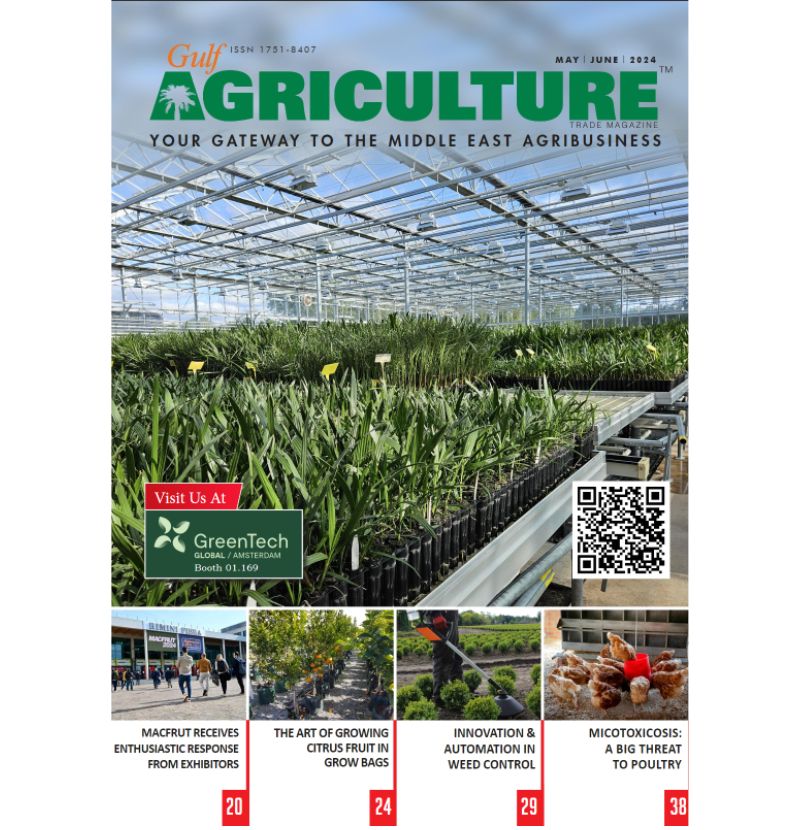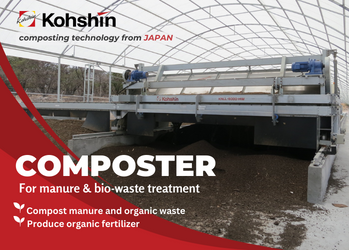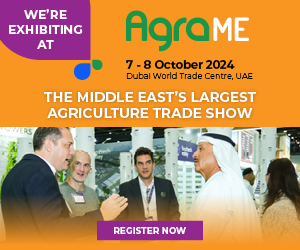Described at the Doha Expo the most advanced machines and equipment to cultivate even arid soils and to create highly automated farming models. The 2024 edition of EIMA International, the world exhibition of agricultural mechanics, to be held in Bologna from 6 to 10 November has been presented to journalists and businesspeople.
Developing agricultural production and meeting a growing demand for fruit and vegetables requires cutting-edge mechanical solutions and electronic systems. Qatar is investing in quality agriculture and exploring opportunities for cooperation with the Italian agromechanical industry, one of the most advanced in the world. This emerges from the Italian day organised within the international Expo Doha by the Italian Trade Agency in cooperation with FederUnacoma, the Italian federation of agricultural machinery manufacturers. The day of “Made in Italy” focused on two main events, the press conference this morning of EIMA International, the great exhibition of agricultural mechanics, organized by FederUnacoma to be held at the Bologna fairground from 6 to 10 November, and the event on the theme “Marginal areas and extreme territories: the new challenges of agricultural mechanisation” held in the afternoon. “Italy’s official participation in Expo Doha 2023 – said the Italian Ambassador to Qatar Paolo Toschi at the opening – is enriched by presentation of the 46th edition of EIMA International. The trade fair and the calendar of workshops and conferences that will take place over the five days of the event, will showcase the most advanced technologies and cutting-edge solutions for modern agriculture, respecting the environment and ensuring sustainability. “This technology is showing us the future of agriculture – also reported by the Ambassador – and we are proud to enhance it in Doha”. Divided into 14 product category sectors and five thematic showcases – explained FederUnacoma Deputy General Manager Fabio Ricci – EIMA became itself as one of the largest sectorial exhibitions in the world, with a number of exhibiting companies that should largely exceed 1,530 of the previous edition, with an audience of 327 thousand attendees. EIMA 2024 will show all the world innovations in terms of tractors, implements, equipment, components, but also advanced electronic systems, drones and agricultural robots to cultivate every type of territory. The new frontiers of agricultural mechanics were discussed in the second event of the day, focused to describe the technologies produced by Italian industries that best suit Qatari agriculture. “The quality of Made in Italy is not only referred to fashion and agrifood sectors – underlined by Paola Lisi, ITA Commissioner in Doha, opening the event – but also highly technological sectors, such as the agricultural mechanics which represents an excellence of the Italian industry, and which is systematically promoted by ITA through specific events addressed to selected journalists and businesspeople”. The meeting included three speeches aimed at describing the role of Italian industry and the new prospects of mechanisation for agriculture in Arab countries. Agricultural mechanics is one of the leading sectors of the Italian industry – Fabio Ricci explained again in his report – which is featured by an extraordinary breadth of range, and which offers technologies able to reconcile the increase in agricultural yields with the conservation of natural resources. In the vast product categories made by the Italian industries – explained Lorenzo Iuliano of the Technical Office of FederUnacoma – there are those for minimum tillage, specialty crops at open field and within greenhouses, and irrigation, which have developed to reduce the impact on the soil, the use of pesticides and water consumption. These are increasingly sophisticated machines, governed by precision electronic devices. Moreover, agriculture is strongly projected towards a full automation of functions – as Lorenzo Marconi of the University of Bologna explained – and towards the use of fully autonomous robots. For several years, a specific department of the University has been designing and testing agricultural robots capable of carrying out automated complex activities in the vineyard and other crops, and the department’s task is to bring these prototypes to the level of industrial production, to reach those markets that focus on the quality of production and on self-governing farming models.





















